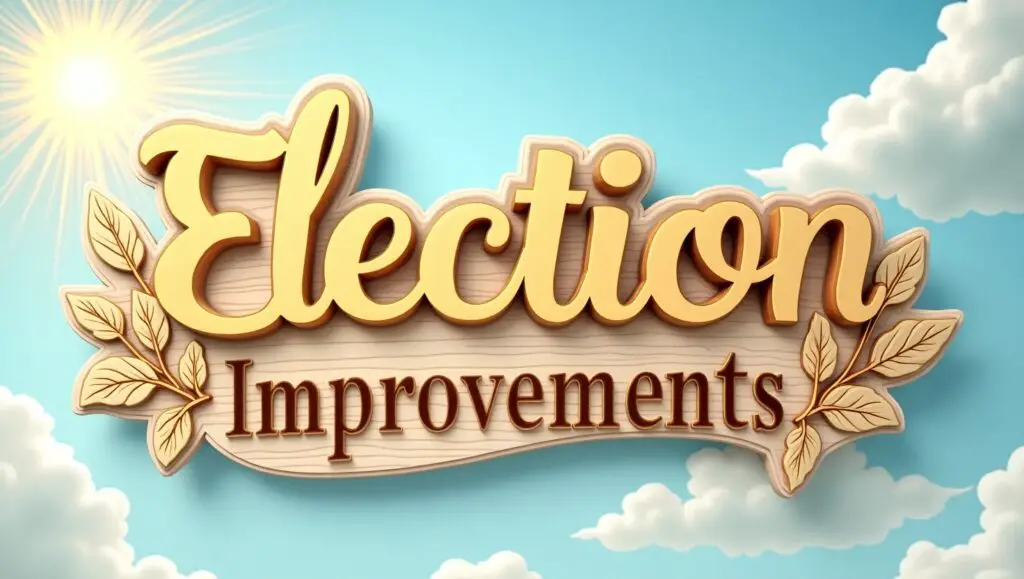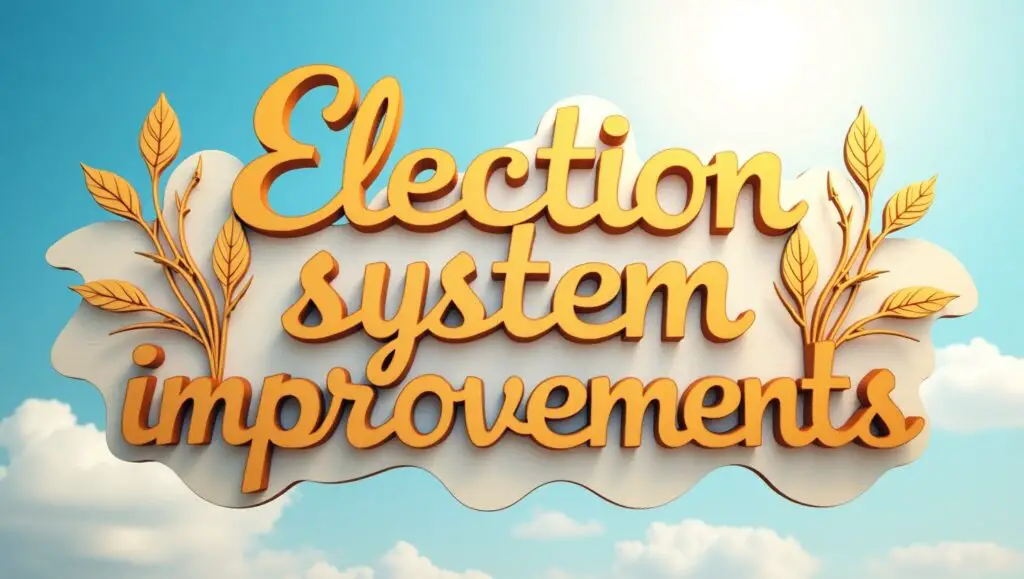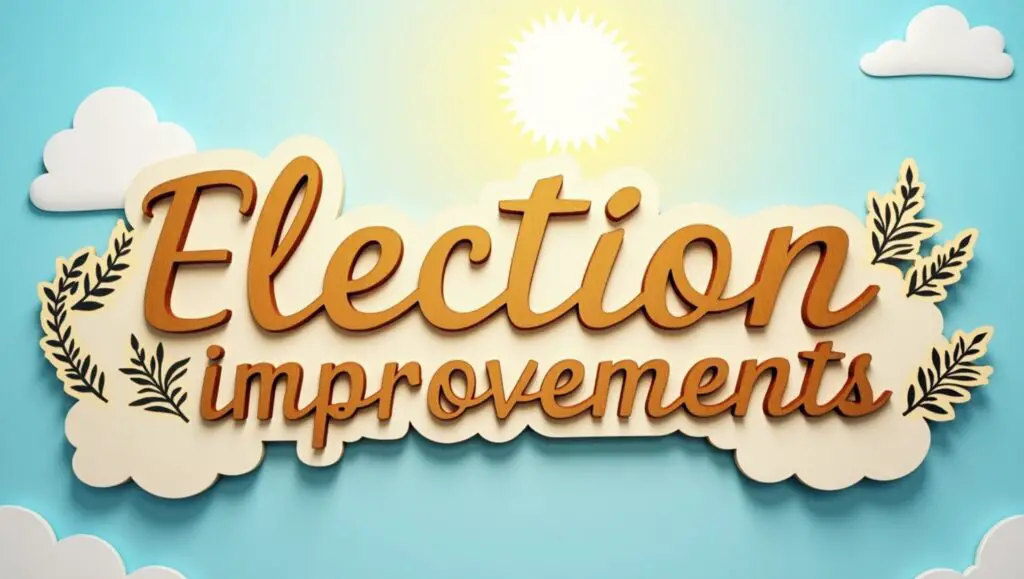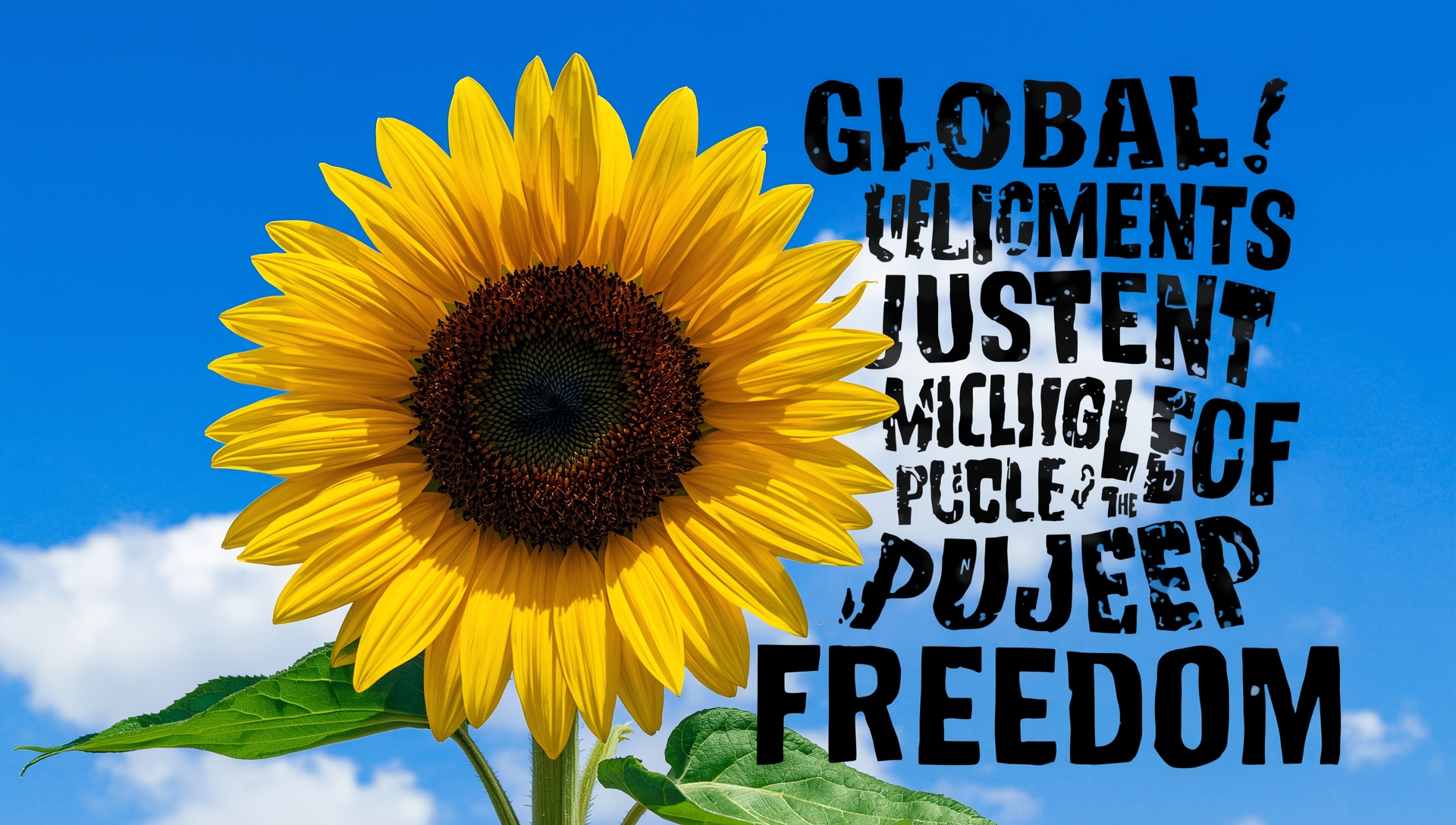Elections are the cornerstone of political legitimacy in any democracy. Elections that are free, fair, and transparent guarantee that people have the ability to select their leaders and influence the course of their nation. However, this democratic process has frequently been undermined by antiquated voting procedures, ineffective administrative practices, and a lack of confidence. Countries all around the world are actively working to upgrade their election systems in 2025 in an effort to regain public trust, guarantee equity, and adopt technology for effective governance.
This article examines important developments, innovations, and difficulties in updating election systems and how these advancements are influencing citizens’ democratic experiences.

The Need for Election System Reforms
Many nations’ election processes have faced a number of challenges, including:
Voter manipulation and fraud
Voter rolls that are inaccurate
Results that are delayed or contested
Low voter turnout as a result of lengthy wait times or difficult access
Outdated voting tools and processes
The public’s confidence in the voting process may be damaged by such issues. Countries are currently spending money on electoral system improvements that put an emphasis on efficiency, security, inclusivity, and openness in order to preserve the integrity of democracy.
Adoption of Digital Tools and Electronic Voting
The widespread implementation of electronic voting (e-voting) systems is one of the most noteworthy advancements in 2025. National elections are already being held online in nations like Brazil and Estonia, with lower fraud rates and quicker outcomes.
To expedite vote counting and guard against fraud, the Election Commission of Pakistan (ECP) in Pakistan has started pilot programs utilizing Electronic Voting Machines (EVMs). These devices have demonstrated potential in expediting the voting process, despite ongoing discussions on their dependability.
In order to avoid duplicate voting and remove fraudulent identities from electoral rolls, nations such as Ghana and India are also implementing biometric voter verification, which uses fingerprints and facial recognition.
Integration of Digital IDs and Online Voter Registration
One important reform area is increasing voter registration. Online voter registration is now permitted in many nations, which cuts down on paperwork, mistakes, and delays. By connecting voter rolls and national ID databases, the list of eligible voters in 2025 will be clear, current, and devoid of duplicates.
ECP’s voter list system and NADRA’s database are now tightly integrated in Pakistan, allowing for quicker voter verification and lowering the possibility of underage registration or phantom voters.
Better outreach is also made possible by this digital transition, since election officials may now send out emails or SMS alerting voters to polling location information.
Increased Inclusion and Accessibility
All citizens can now take part in the democratic process regardless of their geography, socioeconomic standing, or physical capabilities thanks to increasingly inclusive modern election methods.
In 2025, the elderly, those with disabilities, and those residing in remote areas will increasingly use postal ballots and mobile voting units. To maintain their dignity and comfort, voting places in India have made special accommodations for transgender and disabled voters.
To make it simpler for expatriates to vote without having to travel back home, some nations are also looking into allowing citizens to vote online.
Improving Openness and Tracking
Countries are spending money on third-party audits, real-time monitoring, and transparent vote counting procedures to stop electoral fraud and rigging.
Every polling station’s results are frequently posted in real time to public dashboards so that observers, the media, and residents can follow the process.
To cut down on delays and lower the possibility of manipulation, Pakistan’s ECP has started reporting vote counts in real time using the Results Transmission System (RTS) and Result Management System (RMS).
Civil society groups and international observers are also contributing significantly to the independent observation of elections and the exchange of results for future development.
Addressing Election Violence and Disinformation
Fighting hate speech, political disinformation, and fake news that sway voters on social media is another key area of election reform.
Election commissions are collaborating with tech firms in 2025 to identify false information, take down damaging content, and disseminate accurate information. Campaigns for voter education assist the public in recognizing misleading information and making wise decisions.
Additional measures, such as secure polling stations, surveillance cameras, and law enforcement deployment, are being used in conflict-prone areas to prevent electoral violence and intimidation.

Increasing Voter Participation and Education
An informed and involved voter is just as important to an efficient election system as proper processes. Voter awareness initiatives are now a crucial component of election changes because of this.
First-time voters in nations like Pakistan are being educated by youth-focused programs in colleges and on social media. Rural populations in African countries are being encouraged to participate through community outreach initiatives and radio programs.
Voters may now more easily obtain information and confidently exercise their right to vote thanks to digital tools that provide voter helplines, location finders, and frequently asked questions.
Implementation Difficulties
Notwithstanding these advancements, difficulties still exist:
The adoption of new technology is restricted by financial restrictions.
Implementation of reform may be slowed by political opposition.
Digital systems might be disrupted by cyber threats or technical issues.
False information travels more quickly than accurate corrections.
Nonetheless, ongoing education, public involvement, and international collaboration are assisting countries in progressively overcoming these challenges.

In conclusion
, a more promising future for democratic engagement
A significant step toward creating inclusive, transparent, and equitable democracies will be the 2025 election system upgrades. These reforms are strengthening democratic institutions and empowering citizens, whether it is through improved surveillance, biometric verification, digital voting, or improved access for underrepresented groups.
Every vote must matter and every voter must have faith in the process for democracies to succeed. We can anticipate elections that accurately represent the voice of the people if we continue to be innovative and dedicated.
reforms in Pakistan, electronic voting machines, transparent vote counting, online voter registration, biometric voting verification, voter education campaigns, safe elections, digital democracy, free and fair elections, and election system enhancements by 2025



